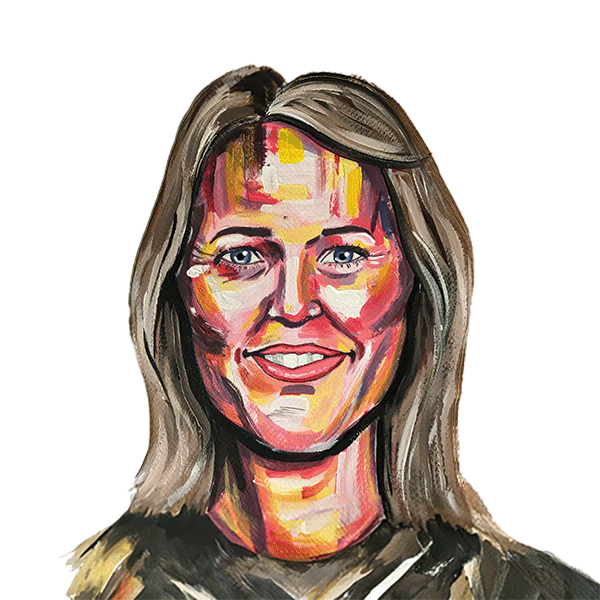Mental health For Spotifiers And Beyond: Normalising The Conversation

Mental health stigma is still very present around the globe and is the cause for so many people to suffer in silence. Depending on where you are in the world, stigma associated with mental health is highly or partially present. It makes us feel shame and guilt, and leads us to believe we are weak just because we’re struggling with our mental health or have a diagnosed mental health condition. The stigma is the thing that creates the numerous presumptions about mental health and mental illness.
The stigma attached to mental health issues is the biggest cause for someone not to seek the support they need. It’s often the case that those who are suffering from mental health conditions, feel like they are the only one who doesn’t have everything together, often compounding the existing mental illnesses or concerns.
Reducing Stigma As A Strategic Pillar
This is why reducing the stigma around mental health issues is so, so important. In fact, normalising conversations is one of Heart & Soul’s strategic pillars. By normalising the conversation, we aim to reduce this extremely damaging stigma. Every single one of us has mental health. When we talk about mental health, we’re talking about our mental well-being: our emotions, our thoughts and feelings, our ability to solve problems and overcome difficulties, our social connections, and our understanding of the world around us. Good mental health isn’t about always feeling happy and not having challenges in life. It’s about living and coping well despite problems. If we find it difficult to manage how we think, feel, and act with respect to daily stresses that can be a sign of poor mental health. We all move up and down the positive-to-negative mental health scale during our life. It’s rarely an absolute state being positive all the time because of things like loss, separation, discrimination, work stress, life changes and so on.
What is important to know is that a diagnosed mental illness is not equal to having poor mental health. One can have a mental illness and have good mental health by knowing how to take care of themselves. With access to the right support and tools, anyone can work towards positive mental health.
Since 2018, Spotify has had a strong focus on mental health through our strategic mental health initiative: Heart & Soul. Through Heart & Soul we have been providing mental health education and support to our band members, and as demonstrated by our most recent employee survey results, 84% of our employees agreed that Spotify advocates for positive mental health.
Spotify’s Mental Health Hub
Our Heart & Soul initiative is an employee strategy – it’s how we work with mental health for Spotifiers. However, since reducing stigma is such a huge part of this, we are happy that from 2021, we’ve been able to utilise our large global platform.
After noting a rise in listeners’ interest in learning more about mental health and in some cases specifically seeking to get help, we launched an external microsite, dedicated to mental health resources. We partnered with mental health and nonprofit orgnisations across the globe to build out a list of resources that listeners could identify to learn more about mental health and if needed, find ways to get help. After 2021’s successful launch, this year, we decided to revamp the site, offering more resources and getting more granular on the critical topics related to mental health.
The 2022 microsite now covers six categories of available resources including: Mental Health, Coming Out and LGBTQAI+ Identity, Domestic Abuse, Drug and Alcohol Misuse, Eating Disorders, and Sexual Violence. We also added specific resources in dozens of new markets and doubled the amount of languages that the resource hub is offered (now available in 27 languages).
As we continue to learn about new ways to reach our listeners, we are leveraging the mental health site as an evergreen asset for our show and studios teams to point to within their storytelling. For example, when the show-team behind the new Gimlet podcast, Stolen, wanted to offer resources for their listeners around sexual violence, as instances of sexual violence occurred throughout the storytelling within series, the team partnered with Equity and Impact to create a customised URL, Spotify.com/Stolen, which redirected listeners directly to the new Mental Health microsite. Throughout the series, voiceover calls-to-action directed listeners who may be dealing with sexual violence to Spotify.com/Stolen to find resources to get help.
Sharing Is Caring
We started our journey on mental health tools and support for our employees, and we remain committed to keeping our employees at the heart of our work in this space. We are also committed to providing the maximum impact to all of those who would benefit from our learnings.
We believe that sharing heals, that it’s important to talk about mental illness and not only address mental health on the surface. We know that so many people are suffering alone in silence with shame. By bringing our experiences to the surface, we learn that we are not alone, that there is help available and that no matter if we are living with a mental illness or not, we all have the opportunity to live mentally well. Sharing is caring, and we love that we can take a step to change the world around us. And our employees are at the heart of this work, as we’re sharing resources that we’ve learnt are helpful.



